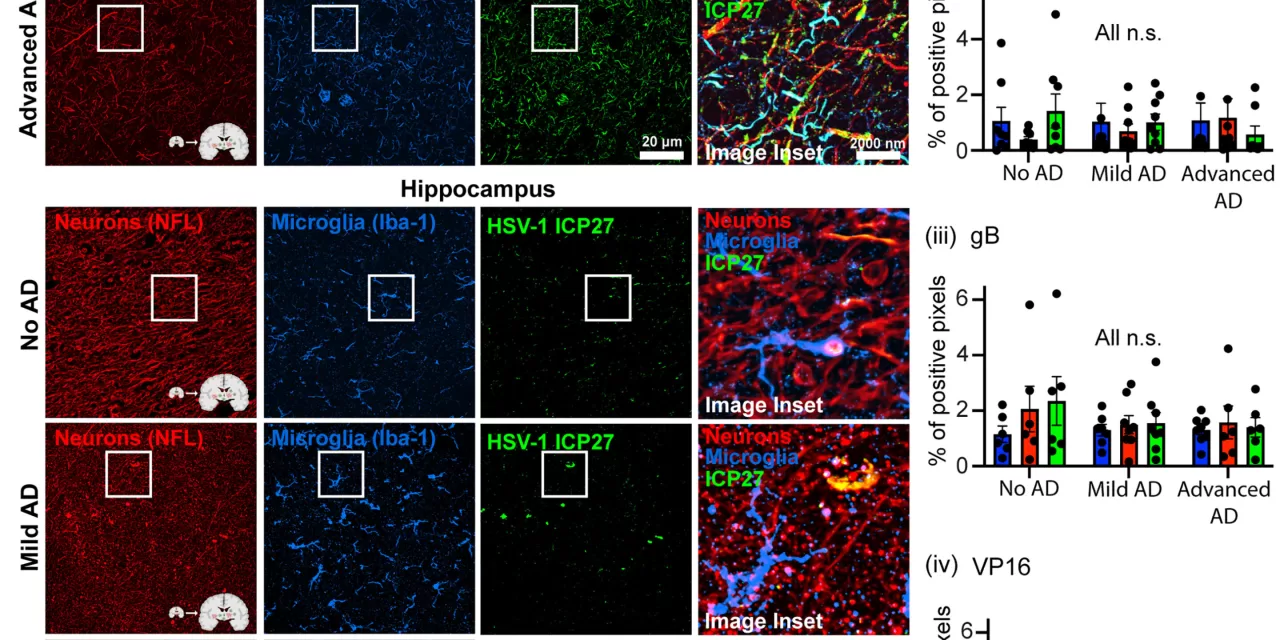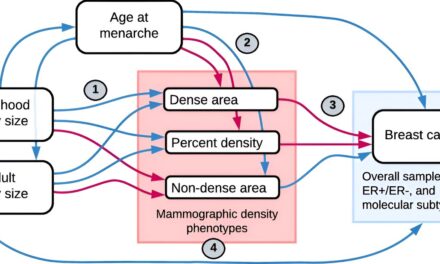University of Pittsburgh Research Unveils Surprising Link Between Herpes Simplex Virus and Alzheimer’s Disease
A groundbreaking study led by researchers at the University of Pittsburgh has revealed a surprising connection between herpes simplex virus-1 (HSV-1) and Alzheimer’s disease, suggesting that viral infections may play a significant role in the onset of neurodegeneration associated with Alzheimer’s. The findings, published today in Cell Reports, offer fresh insights into the complex relationship between infections, brain immune responses, and the development of Alzheimer’s disease.
The study’s lead author, Dr. Or Shemesh, an assistant professor at Pitt’s Department of Ophthalmology, explained that the research challenges the traditional view of tau, a protein long considered solely harmful in Alzheimer’s. According to the new findings, tau may initially serve a protective role in defending the brain against viral infections but may later contribute to brain damage as Alzheimer’s progresses.
“Our study challenges the conventional view of tau as solely harmful, showing that it may initially act as part of the brain’s immune defense,” Dr. Shemesh said. “These findings emphasize the complex interplay between infections, immune responses, and neurodegeneration, offering a fresh perspective and potential new targets for therapeutic development.”
The researchers found forms of HSV-1-related proteins in Alzheimer’s brain samples, with higher concentrations of viral proteins detected alongside phosphorylated tau tangles—a hallmark feature of Alzheimer’s pathology. These viral proteins were observed in brain regions most vulnerable to Alzheimer’s, reinforcing the idea that HSV-1 could influence disease progression.
In an innovative approach, the team conducted studies using miniature human brain models in Petri dishes. These experiments suggested that HSV-1 infection could alter tau protein levels and influence its function, acting as a protective mechanism against neuronal death immediately following infection. However, the researchers noted that the neuroprotective effects of tau appear to decrease over time, potentially worsening Alzheimer’s pathology.
While the precise mechanisms by which HSV-1 affects tau protein and contributes to Alzheimer’s remain unclear, Dr. Shemesh and his team plan to continue their research. They aim to further explore the virus’s impact on tau function and identify potential therapeutic strategies that target viral proteins or fine-tune the brain’s immune response. The team also hopes to expand their investigation to other neurodegenerative diseases, such as Parkinson’s disease and ALS, to determine if similar viral mechanisms are involved.
In addition to Dr. Shemesh, the study involved contributions from researchers at the University of Pittsburgh, Tel Aviv University, and Carnegie Mellon University, including Vanesa Hyde, Chaoming Zhou, M.D., Juan Fernandez, Krishnashis Chatterjee, Ph.D., and many others.
This research opens new avenues for exploring treatments that could target infections and immune responses, potentially revolutionizing how we approach Alzheimer’s disease and other neurodegenerative conditions.
For more information, see the full study: Vanesa R. Hyde et al. Anti-Herpetic Tau Preserves Neurons via the cGAS-STING-TBK1 Pathway in Alzheimer’s Disease, Cell Reports (2025). DOI: 10.1016/j.celrep.2024.115109.












